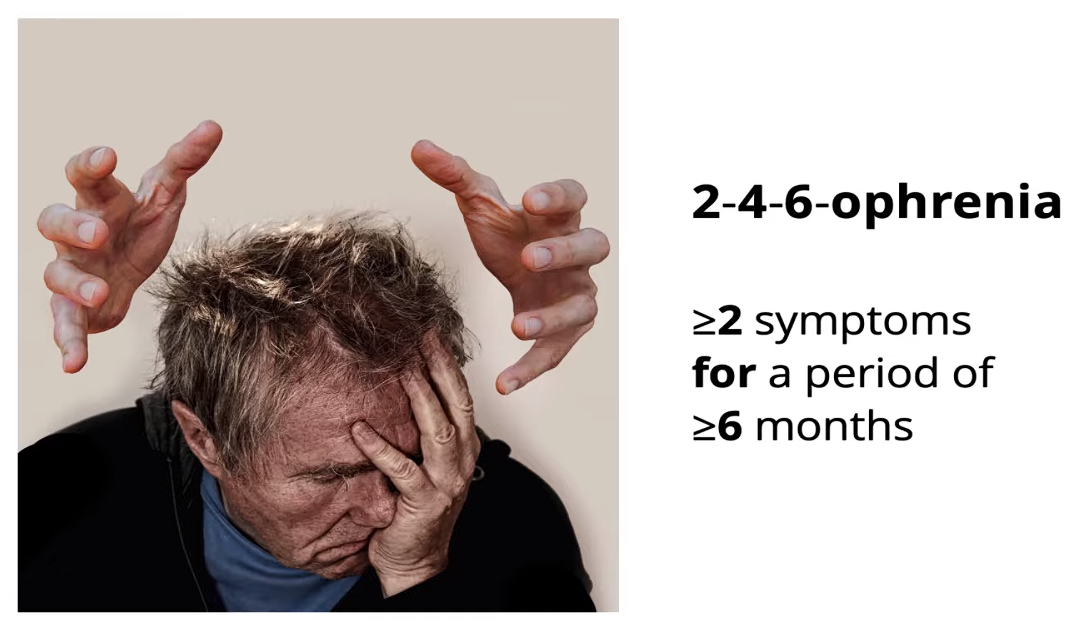Epidemiology
Etiology
Pathophysiology
- Dopamine hypothesis: ↑ dopamine activity in mesolimbic pathway (positive Sx), ↓ dopamine in mesocortical pathway (negative/cognitive Sx).
- Other neurotransmitters implicated: ↓ activity at NMDA glutamate receptors, role of serotonin (basis for SGA efficacy).
Clinical features
Diagnostics
- At least two of the following symptoms must be present, with at least one of these from the first three symptoms listed:
- Delusions
- Hallucinations
- Disorganized speech
- Grossly disorganized or catatonic behavior
- Negative symptoms
- Apathy: lack of motivation
- Social withdrawal
- Flat affect: emotional flattening/monotone speech
- Poverty (lack) of speech
- Anhedonia: inability to experience pleasure
- The above symptoms persist for ≥ 1 month.
- There are continuous cognitive or affective disturbances for ≥ 6 months.
- Symptoms must cause social, occupational, or personal functional impairment lasting ≥ 6 months.
Mnemonic
Patients can hear high definition voices. But they are not real. Like there are radiowaves spreading fake bullshit (BS) via a network
Differential diagnosis
- Schizophrenia: ≥ 6 months
- Schizophreniform disorder: 1–6 months
- Brief psychotic disorder: > 1 day but ≤ 1 month
- Brief psychotic disorder usually develops after stressful life events.
- Schizoaffective disorder
- Meets criteria for Schizophrenia AND a Major Mood Disorder (MDD or Bipolar).
- Differentiation Rule: Psychosis must occur for > 2 weeks in the absence of a major mood episode (depressive or manic) to rule out Mood Disorder w/ Psychotic Features.
- MDD with psychotic features doesn’t have psychotic symptoms alone without mood symptoms
- A single illness episode where both of the following occur concurrently:
- Psychotic symptoms that meet the criteria for schizophrenia
- Features of a major mood episode (major depressive episode OR manic episode OR mixed episode)
- Psychotic symptoms occur at least once in the absence of mood disorder symptoms.
- Delusional disorder
- ≥ 1 month
- At least one delusion
- No other prominent psychotic symptoms (e.g., hallucinations, disorganized speech, negative symptoms)
- E.g., delusional parasitosis: the fixed belief that the body is infested with a parasite despite the lack of supporting evidence
- Social and occupational functioning are not markedly impaired (vs psychosis)
Treatment
Prognosis
| Good | Poor |
|---|---|
| Later onset | Onset in childhood or adolescence |
| Female sex | Male sex |
| Acute onset with precipitant | Gradual onset (prodrome), no precipitant |
| Predominantly positive symptoms | Predominantly negative symptoms |
| No family history | Family history of psychotic illness |
| Short duration of active symptoms | Long duration of untreated psychosis |
